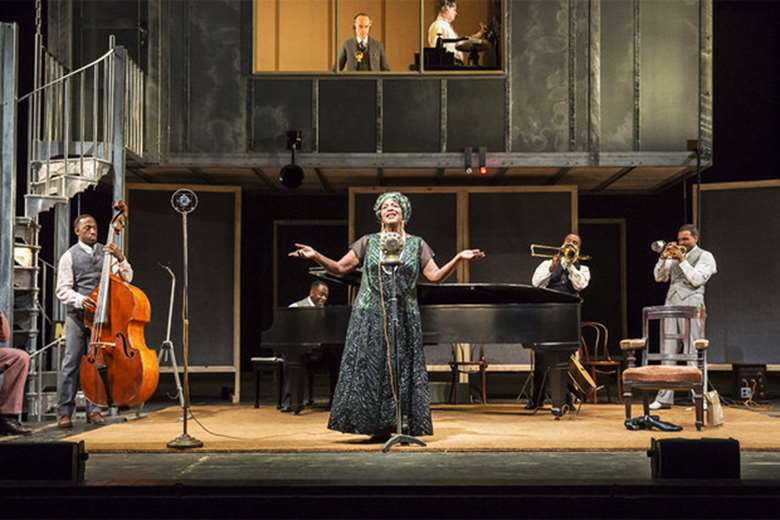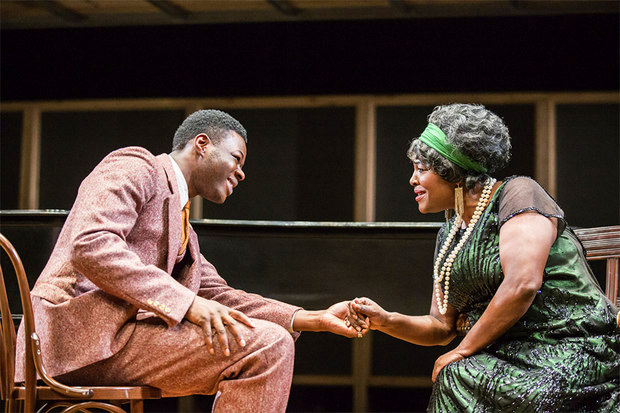Ma Rainey’s Black Bottom shakes some tail at the NT
Wednesday, April 20, 2016
With Motown The Musical at the Shaftesbury and Soul: The Untold Story Of Marvin Gaye at the Hackney Empire the capital’s theatres are vibrating to the sound of black music.

This production can justifiably be called the mother of the aforementioned, a mesmerising work by August Wilson that celebrates the blues, the fertile precursor to the sophisticated sound of Detroit’s blessed assembly line hit makers and, more importantly, the form of expression that enables the wretched of the earth to grab their own metaphorical piece of land by way of song.
August Wilson’s groundbreaking 1984 text has lost none of its verve or indeed pertinence to the digital age, first and foremost because the issues of race and music industry exploitation reboot on a regular basis, whether it’s miserly Spotify revenue streams, Apple’s acidic control of artist catalogues, or scant recognition of people of colour at those glitzy ceremonies that are often conspicuously un-diverse.
Wilson centres his story on power dynamics in the incipient recording industry of the 1920s, the time of ‘black music, white business’, with the historic figure of Ma Rainey, mother of the blues, as the pivot. Majestically played by Sharon D. Clarke, who strikes exactly the right balance of sassy attitude, steely resolve and deeply impressive vocal chops, Rainey has agreed to a session in order to cut the iconic song ‘Black Bottom’. But she has not given her seal of approval on the arrangement, namely how much showboating jazz will be allowed into her blues, how many notes a horn can add to her own choruses.
The cynical agenda of producer Sturdyvant (Stuart McQuarrie) clashes with Ma’s, and the presence of arrogant hotshot trumpeter Levee (O.T Fagbenle), naïve enough to think that his youthful talent is respected by exploitative company kingmakers, pushes the temperature to an inevitably tragic boiling point. Frustration begets delusion. And murder.

Briskly paced with just the right blend of humour and pathos, the piece really excels through its characterization and existential depth. Wilson is able to put the meaning and feeling of the blues into the mouths of Rainey and bandmembers without their pronouncements ever sounding sententious or didactic. The dialogue is compellingly natural, buzzing with witticism and bustling with rhythm in keeping with the music at the core of the drama. The collective energy generated by the exchanges between the journeyman musicians – Cutler (Clint Dyer), Slow Drag (Giles Terera) and Toledo (an outstanding Lucian Msamati) – in the rehearsal room, where they essentially open wounds on what it means to be a “nigger both with and without a god”, is gripping.
'Black Bottom' is a dance as well as a song, but while the creativity of its just-out-of-slavery progenitors is never in doubt, so is the identity of them that call the tune and the cruelty with which the ‘boys’ are told how high they have to jump.
A piece that sets the bar very high indeed.
– Kevin Le Gendre